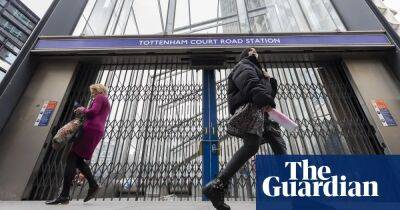‘It’s just not worth it’: why full-time work no longer pays in the UK
T ougher benefit rules have boosted employment in the UK, but have also trapped workers in dead-end jobs and weakened incentives to move from part to full-time work, according to the Institute for Fiscal Studies (IFS).
As Britain is expected to be the only major industrialised country to see its economy shrink this year, amid rising interest rates and higher taxes, the government is frantically trying to find ways to boost economic growth.
With the chancellor, Jeremy Hunt, having launched an inquiry into why hundreds of thousands of people have left the workforce recently, and the Treasury keen to get more people into full-time work, the question of why more people aren’t increasing their hours amid a persistent shortage of workers has once more moved centre stage.
More than 8 million people – a quarter of the UK workforce – are in part-time work now, the latest official figures from the Office for National Statistics (ONS) show.
Influential Tory backbenchers are putting pressure on the chancellor to introduce a range of measures to help make childcare more affordable so parents can get back to work.
In a keynote speech at Bloomberg last month, Hunt urged early retirees and those struggling to find a new job to rejoin the workforce. “We need you, and we will look at the conditions necessary to make it worth your while,” he said.
But for more than a decade now, due to a range of Conservative policies, families working full-time across the income spectrum have been finding themselves earning less money than if they worked part-time.
William, 58, a single father from Bedfordshire, is one of several people who told the Guardian that they would like to work more, but are financially better off for reducing their hours.
He works 11
Read more on theguardian.com

















